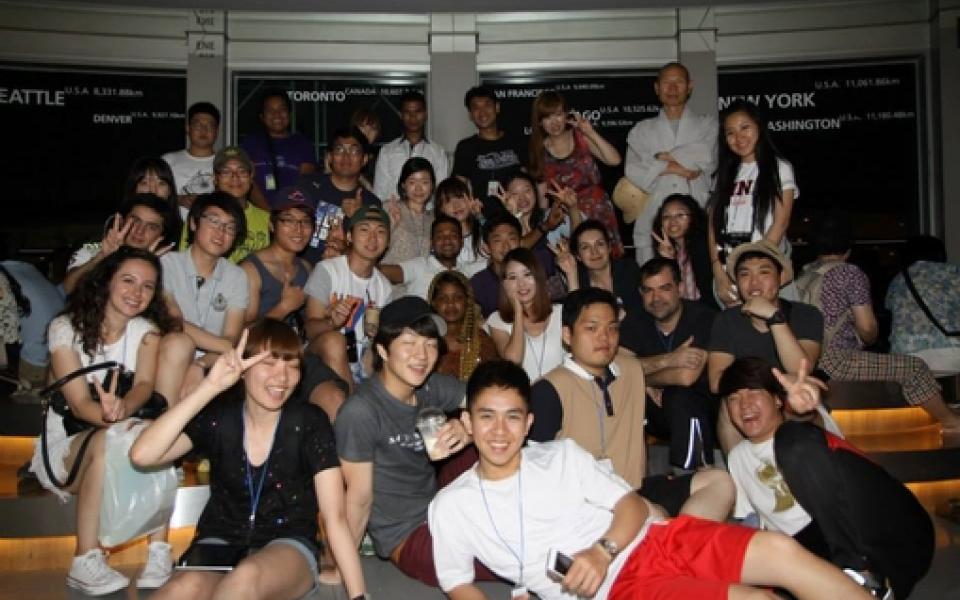
During the first week of July, URI Korea CC invited youth from all over the world to participate in an interreligious-intercultural youth camp in Seoul, South Korea. An annual venture first initiated in 2006, URI Korea CC’s youth camp’s aim is to mobilize a group of diverse youths, providing them with an opportunity to be engaged and be impacted by each other’s faiths. The hope is to shatter preconceptions built in ignorance, building individual bridges between people, their cultures, and their religions.
Thanks to the help of organizers Dr. Jinwol Lee, Myun Shinok and YLP Coordinator Matthew Youde, as well as support from the Korean Ministry of Culture, Sports and Tourism, 36 eager minds gathered in Seoul for orientations, lectures, cultural and religious site visits. Most of the participants were from South Korea; however, youth from the Philippines, Laos, Uganda, Romania, Bangladesh, Tajikistan, China, Nepal, Argentina, and United States were also present. They came from different backgrounds and faiths: Buddhists, Muslims, Christians, Mormons, Agnostic. The participants ranged in age from 18-30 years old, and were comprised mainly of university students.
As part of the youth camp’s activities, participants visited historical and cultural sites in South Korea, which included Gyeong-bokgun (the “Palace Greatly Blessed By Heaven”), Dolmen statues from the neolithic age in Ganghwa (a UNESCO World Heritage site), the Korean Demilitarized Zone (DMZ) between North and South Korea, and the Dorasan train station near the DMZ. South Koreans hope that one day, Dorasan station will manage the customs and clearance of goods, trade, and people traveling among North Korea, China, Russia and South Korea. They also visited religious sites - such as the Seoul Central Mosque, Jeondeungsa Temple, and Myeongdong Cathedral - where they received guided tours and information on the respective religious practices. Most importantly, participants worked together in five groups of six to eight to incorporate what they learned during their religious and cultural visits, culminating in a presentation on the topic “For the Peaceful Multicultural Community.”
Ofelia Trevino, Executive Assistant at the URI office in San Francisco, was one of the participants at the youth camp in Seoul. Primarily involved in administrative work, she had never seen the impact of URI on the ground. “My time at the URI Korea youth camp was a life-changing experience,” she said. “It was magical to see stereotypes disappear by the end of our time together, and witness everyone come to the realization that we’re all one despite our differences.”
